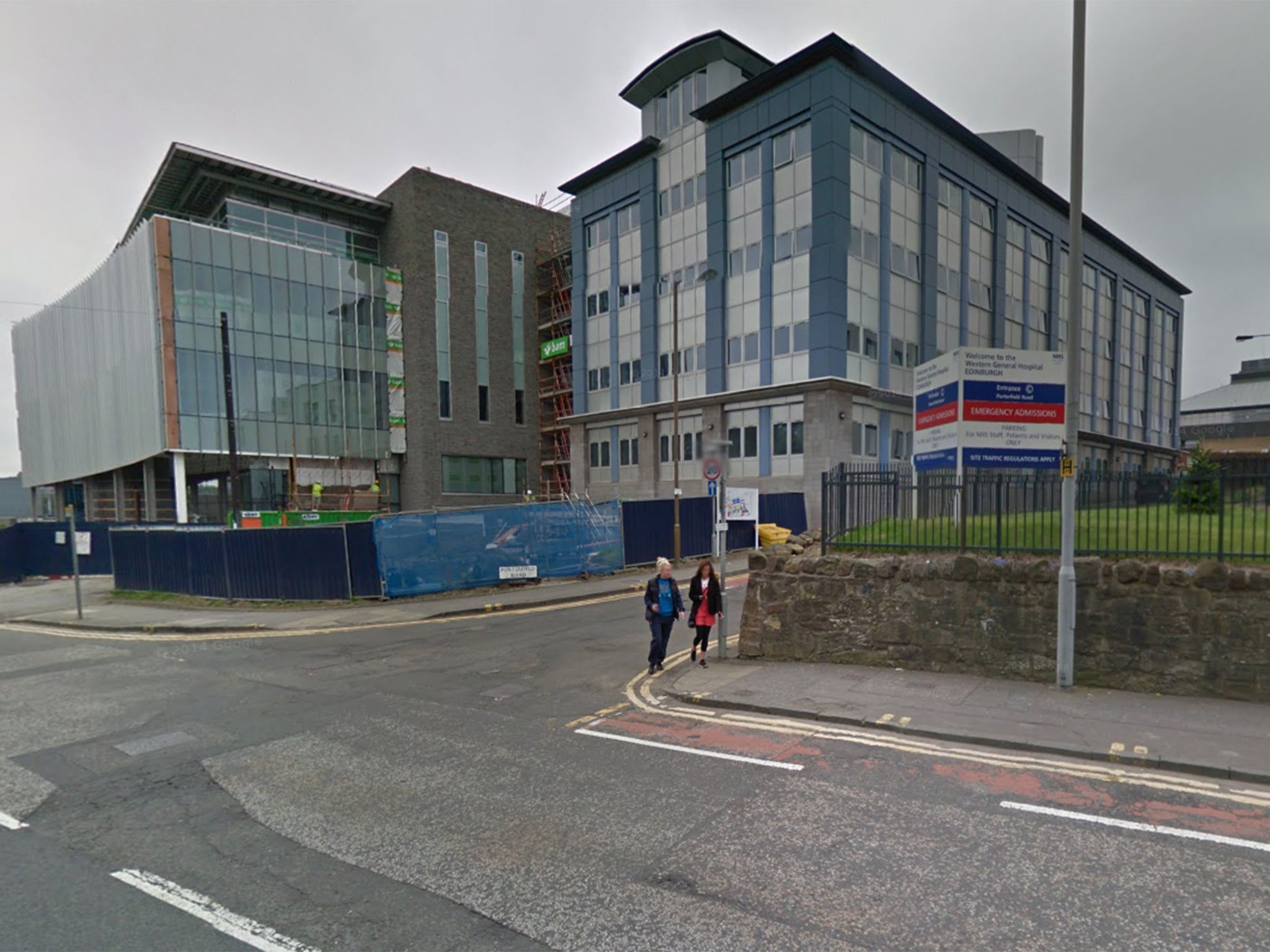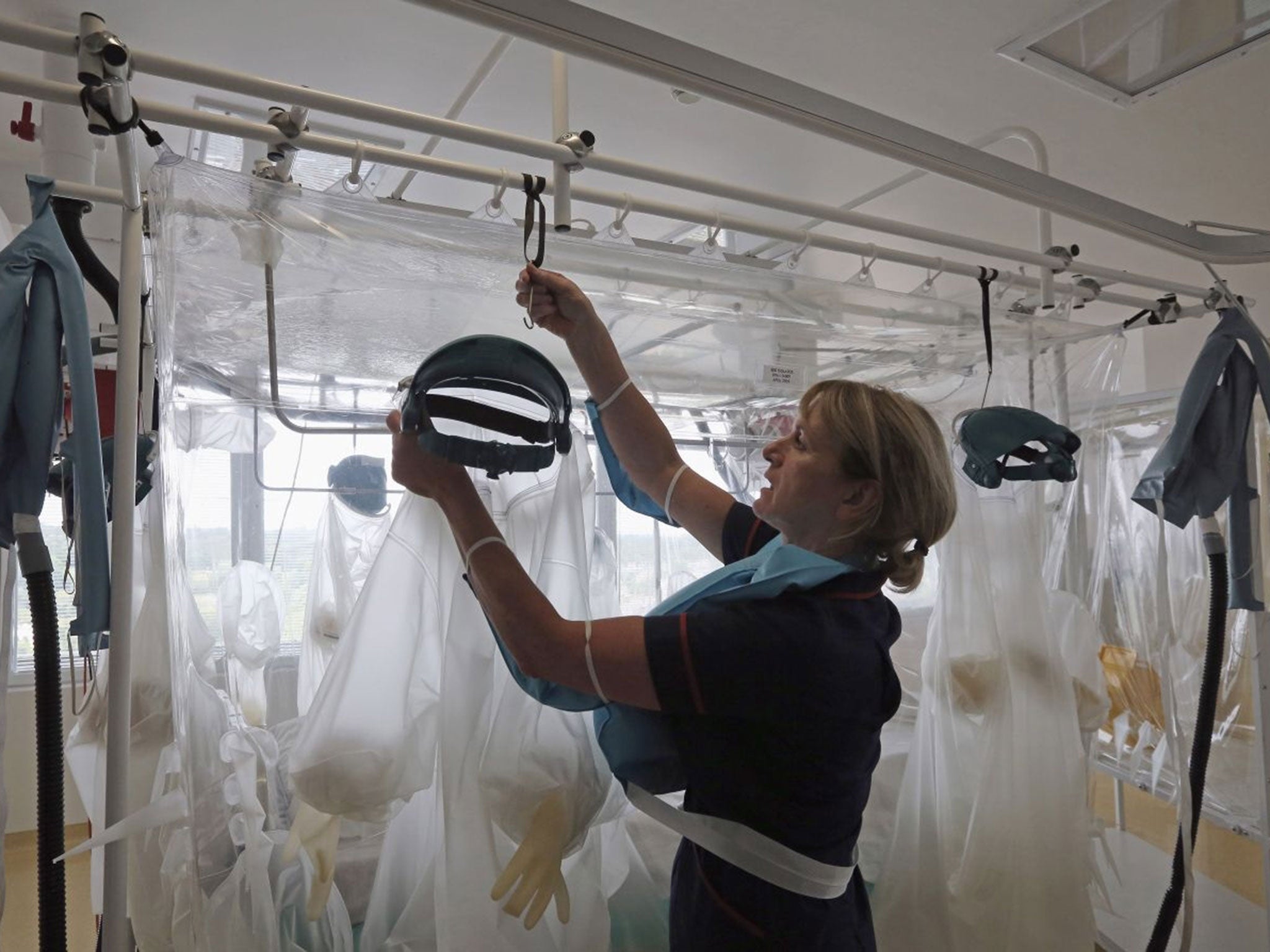Ebola in the UK: Suspected Ebola patient treated in Scotland
The patient recently returned from West Africa

Your support helps us to tell the story
From reproductive rights to climate change to Big Tech, The Independent is on the ground when the story is developing. Whether it's investigating the financials of Elon Musk's pro-Trump PAC or producing our latest documentary, 'The A Word', which shines a light on the American women fighting for reproductive rights, we know how important it is to parse out the facts from the messaging.
At such a critical moment in US history, we need reporters on the ground. Your donation allows us to keep sending journalists to speak to both sides of the story.
The Independent is trusted by Americans across the entire political spectrum. And unlike many other quality news outlets, we choose not to lock Americans out of our reporting and analysis with paywalls. We believe quality journalism should be available to everyone, paid for by those who can afford it.
Your support makes all the difference.Doctors in Edinburgh are treating a patient suspected to have Ebola.
The patient, who recently returned from West Africa, was taken by ambulance to the Western General Hospital in the Scottish capital, and is receiving treatment in the infectious diseases unit.
NHS staff are now testing the patient to see if they are suffering from the deadly virus, after they reported a rise in their temperature.
Some 8,400 people, mainly in West Africa, died of the disease last year.
Melanie Johnson, Director of Unscheduled Care at NHS Lothian, said in a statement: "A patient who recently returned to Scotland from West Africa has been admitted to our Regional Infectious Diseases Unit (RIDU) at the Western General Hospital after they reported a raised temperature.
"As a precautionary measure, and in line with agreed procedures, the patient will be screened for possible infections and will be kept in isolation.
"We have robust systems in place to manage patients with suspected infectious diseases and follow agreed and tested national guidelines."
PHE added: "It is important to remember that the infection can only be transmitted through contact with the bodily fluids - such as blood, vomit or faeces - of an infected person.
"We have advised all front-line medical practitioners and NHS call handlers to be alert to signs and symptoms of Ebola in those returning from affected areas and following such advice we would expect to see an increase in testing."
A Scottish Government spokesperson said: "We are aware that, as a precautionary measure, NHS Lothian has admitted a patient who has returned from West Africa.
"In line with agreed procedures, the patient will be screened for possible infections including Ebola and will be kept in isolation, again as a precaution.
"Scotland has a robust health protection surveillance system which monitors global disease outbreaks and ensures that we are fully prepared to respond to such situations."
The suspected case comes after nurse Pauline Cafferkey, 39, was diagnosed with Ebola in Glasgow, after she had volunteered at a Save the Children hospital in Sierra Leone - one of the nations worst affected by the virus.
Ms Cafferkey is now receiving treatment at the Royal Free Hospital in north London.

Earlier on Thursday, tests on a patient in Northampton suspected to have the virus returned negative results, a spokesman for Northampton General Hospital NHS Trust said.
The woman, who had a history of travel to West Africa, was admitted for treatment yesterday evening and placed in an isolation unit.
A spokesman for PHE said it was "usual practice in these circumstances" to investigate all possible causes of the woman's illness, after she initially tested negative for malaria.
The UN special envoy on Ebola said on Thursday that the outbreak of the deadly virus appears to be slowing down in West Africa, though the battle to contain the disease is not over yet.
"The change in behavior that we've been hoping for, working for, anticipating, is now happening everywhere," Dr David Nabarro told Reuters in an interview.
"The facilities to treat people are available everywhere," he added. "Safe burial teams are providing safe and dignified burial services everywhere and the result is that we're seeing the beginnings of the outbreak slowing down."
Additional reporting by PA
Join our commenting forum
Join thought-provoking conversations, follow other Independent readers and see their replies
Comments